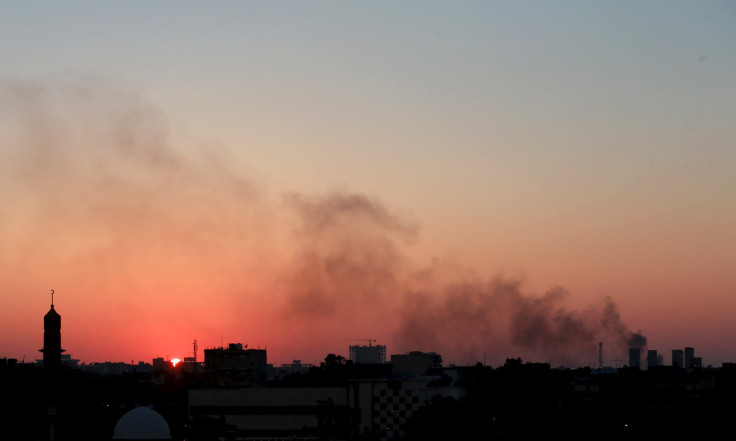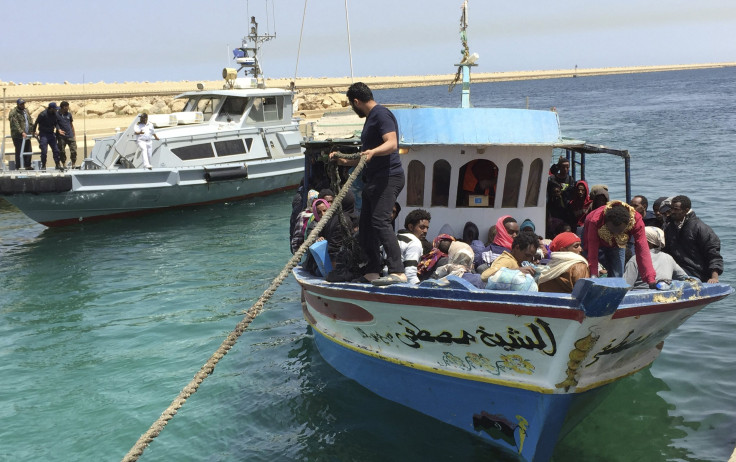Drug And Human Trafficking In 'Lawless' Libya Is Funding ISIS

Speaking before rapturous crowds on Sept. 15, 2011, in liberated Benghazi, British Prime Minister David Cameron announced, “Today the Libyan people have taken their country back.”
That was then.
This is now: The Libyan people have lost their country to rival groups and warring factions – the eastern cities of Beida and Tobruk support the military while Tripoli, in the west, is dominated by Islamist militants -- the most infamous among them the so-called Islamic State group, or ISIS.
This lack of foresight has enabled different groups of fighters to traffic a continuous supply of arms, drugs and people across Libya’s borders, helping to bankroll some of the world’s most violent terrorists.
Saturday’s U.N.-brokered peace deal between rebel groups and Libya's internationally recognized government in Tobruk was the first positive step towards change, but experts say Libya has a long way to go before east and west are reunited.
"Libya is completely lawless," Tuesday Reitano, an expert on migrant and trade networks in Libya and the wider region told International Business Times. "We have now reached a stalemate where the fragmentation in the country is so significant that you can't have a government anymore."

Libya has two governments that claim to rule the country and reconciling the two is proving difficult. The Islamist-led Tripoli government took part in early stages of talks but refused to participate in later discussions.
These groups "don't believe in democracy," Ibrahim Dabbashi, Libya's U.N. ambassador, said during Wednesday’s briefing. "This has to end," he said.
Ending it is far from easy. The country's complete breakdown over the past four years has created a fertile breeding ground for terrorist organizations.
"Libya has had four years of institutional chaos," Dabbashi said. The signing of the peace deal is a "road toward a destination." For him and for other peacekeepers working in the region, chaos cannot be replaced with order unless terrorist groups, including the Islamic State group, are defeated with the help of the international community.
But Libya's extremist groups are almost impossible to destroy, at least in the short term because they have already ingrained themselves into local economies and established impenetrable trade networks.
The high number of African migrants attempting to make the trip to Europe over the past two years has allowed for the development of a far more lucrative coastal migrant trade, one now valued at about $300 million per year in Libya alone. The value of the migrant trade dwarfs any existing trafficking and smuggling business in the region.
The Al-Tabu, a tribal group based in the southern part of the country, has benefitted the most from migrant trafficking. Smugglers that bring Africans across Libya's southern border pay off the ethnic Tabu militia who are tasked with controlling the border.
Other rebel groups are also cashing in. The Islamic State group, which emerged in Libya last year, is taxing the illegitimate economies in the eastern port city of Derna. ISIS attacks on refugee camps in western Syria were most likely intended to increase the flow of refugees along smuggling routes to boost revenue further, according to a recent report.
Dabbashi made a plea to the United Nations Wednesday, asking the international community to lift the arms embargo and send weapons to the country to fight the terrorist groups in the country. He said the government is losing the battle because of a lack of resources.
The terrorist groups are "tempting Libyan youths with money and waging a savage war against the state," he said. If the groups continue to recruit locals into their networks, "terrorism could strengthen its hold on Libya," he said.
© Copyright IBTimes 2024. All rights reserved.





















